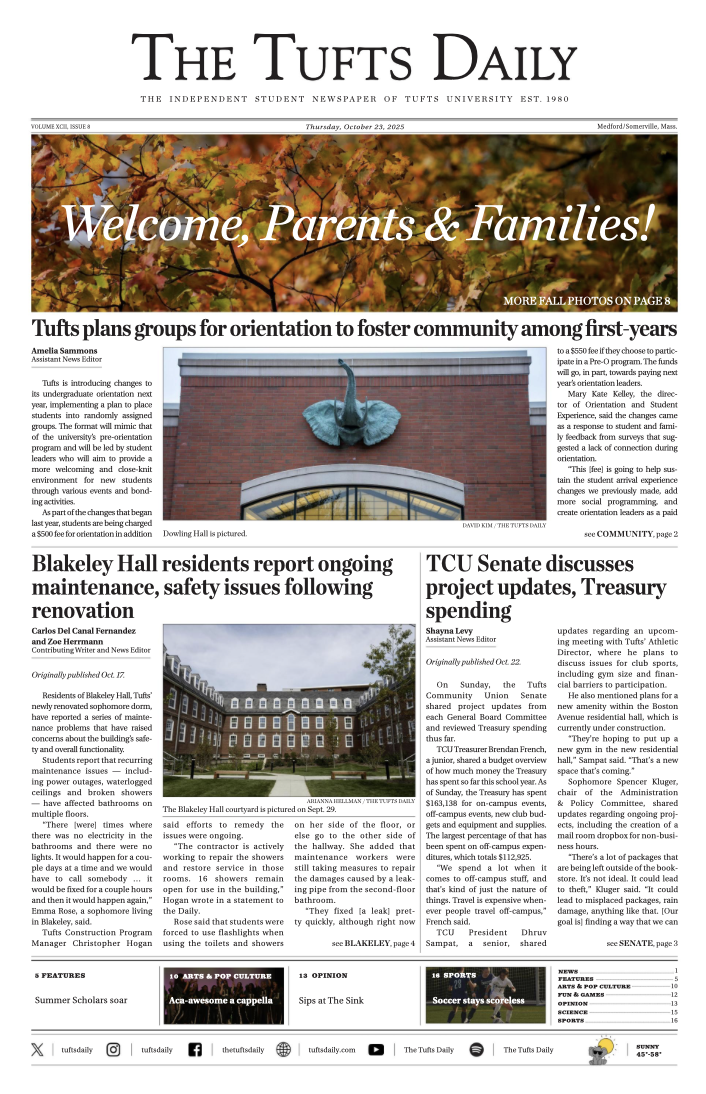Senior Jared Levant spent three weeks this summer studying military leadership at Fort Bragg in Fayetteville, NC - home of the 82nd Airborne division. The division was recently deployed to fight America's new war on terrorism.
"I was attached to an aviation unit down there and these are the people I worked with every day for three weeks," said Levant, a member of the Army's Reserve Officer Training Corps (ROTC). "Once they started deploying people, I kind of had to wonder if any of those people were the ones I worked with. I wonder where those people are today and what they're doing."
Tensions are running high in ROTC after American forces began a military campaign in Afghanistan and President George W. Bush called for sustained efforts. Cadets do not serve until finishing college, but for some, that time is swiftly approaching.
Students are closely following troop assignments - those graduating this year may receive their deployments as early as December.
"Sometimes, you don't get your top choice and you go someplace you hadn't planned on," Levant said. "I always have the news on. I am more aware of things, of what is going on."
"I know that in the future, I'll be in a position where it could affect me," he said.
ROTC, a training program that awards tuition coverage in return for military service, is trying to continue business as usual. But just like schools, governmental agencies, and businesses, it is taking additional security precautions.
Immediately after the attacks, cadets were advised to be "situationally aware," said Lieutenant Colonel Brian Baker, a military science professor at MIT. Baker commands the MIT battalion, which enrolls cadets from Tufts, Harvard, and Wellesley, which do not have ROTC programs. Superiors told cadets to be aware of what they said, who they said it to, and not to "provoke anybody, [and] act respectfully," according to Levant.
Many are also facing a barrage of questions from fellow students and friends. "More people will ask me about it," Levant said. "I'll think twice about what I say."
Official limitations make the cadets' public reaction different from that of other college students - they are permitted only "to speak about their own participation, but not comment on what the nation's response will be," Baker said.
Though ROTC officials are attempting to maintain normalcy, Levant can see unease within the organization. "You can tell that stuff is going on," he said, noting subtle hints that things have changed.
"Speakers [have] their cell phones on during lectures, because they are on alert," he said. Though ROTC will not address the attacks in the classroom, a British officer who spoke to the cadets after Sept. 11 made some remarks about the events.
Like other cadets, Levant was drawn to ROTC by the financial opportunities it offered. Four years ago, he did not anticipate the possibility of being called to combat.
"I thought things would be relatively peaceful," he said. "I can't say much about whether it's good or bad that military action is going to happen...but I don't regret [enrolling in ROTC]."
But one MIT student, who withdrew from ROTC after participating in the program for over a year, said he regrets his decision to leave in light of the attacks. The student, who asked not to be identified, explained a patriotic desire "to do whatever I could to help."
Army ROTC scholarships provide up to $20,000 towards tuition per year. Levant also receives a $300 monthly stipend.
Levant will serve four years active duty after graduating and four more in the reserves, though he is applying for an educational deferment to study law before beginning active service. In December, the Army will either grant his deferment or assign him to one of many Army branches.
Army ROTC students undergo summer training and take three hours of class a week at MIT, where they study leadership, first aid, etiquette, writing operations orders, tactics, and M-16 weapon training. ROTC also requires three hours per week of physical training and occasional weekend trips to nearby bases.





